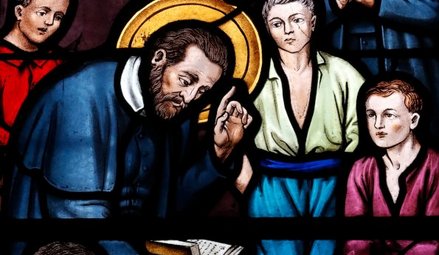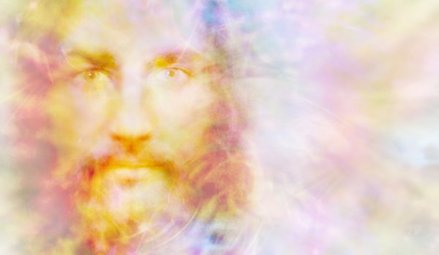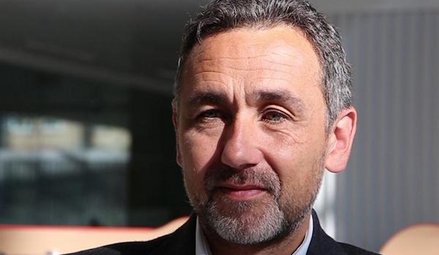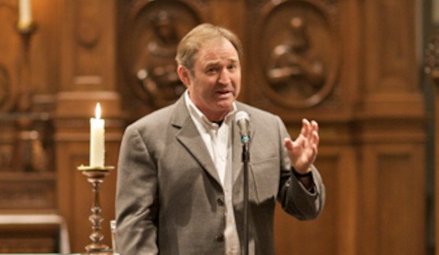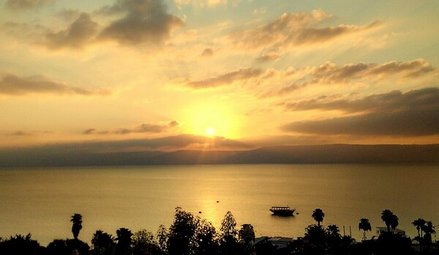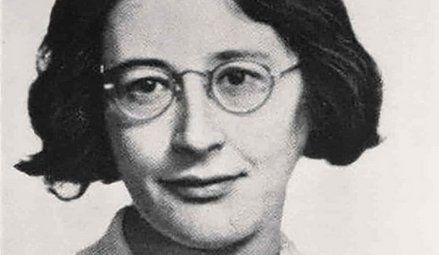- All the reasons
- By theme
- Jesus
- The many proofs of Christ’s resurrection
- Saint Thomas Aquinas: God gave all the divine proofs we needed to believe
- The surpassing power of Christ's word
- Lewis’s trilemma: a proof of Jesus’s divinity
- God saves: the power of the holy name of Jesus
- Jesus spoke and acted as God's equal
- Jesus' divinity is actually implied in the Koran
- Mary
- The Church
- The Bible
- The authors of the Gospels were either eyewitnesses or close contacts of those eyewitnesses
- Onomastics support the historical reliability of the Gospels
- The New Testament was not altered
- The New Testament is the best-attested manuscript of Antiquity
- The Gospels were written too early after the facts to be legends
- Archaeological finds confirm the reliability of the New Testament
- The criterion of embarrassment proves that the Gospels tell the truth
- The dissimilarity criterion strengthens the case for the historical reliability of the Gospels
- 84 details in Acts verified by historical and archaeological sources
- The unique prophecies that announced the Messiah
- The time of the coming of the Messiah was accurately prophesied
- The prophet Isaiah's ultra accurate description of the Messiah's sufferings
- Daniel's "Son of Man" is a portrait of Christ
- The Apostles
- The martyrs
- The protomartyr Saint Stephen (d. 31)
- Saint Blandina and the Martyrs of Lyon: the fortitude of faith (177 AD)
- Saint Lucy of Syracuse, virgin and martyr for Christ (d. 304)
- Thomas More: “The king’s good servant, but God’s first”
- The Martyrs of Compiègne (1794)
- The Vietnamese martyrs Father Andrew Dung-Lac and his 116 companions (17th-19th centuries)
- He braved torture to atone for his apostasy (d. 1818)
- Blaise Marmoiton: the epic journey of a missionary to New Caledonia (d. 1847)
- Saint Maximilian Kolbe, Knight of the Immaculate (d. 1941)
- The monks
- Saint Benedict, father of Western monasticism (d. 550)
- Saint Bruno the Carthusian (d.1101): the miracle of a hidden life
- Blessed Angelo Agostini Mazzinghi: the Carmelite with flowers pouring from his mouth (d. 1438)
- Monk Abel of Valaam's accurate prophecies about Russia (d. 1841)
- The more than 33,000 miracles of Saint Charbel Maklouf (d. 1898)
- Saint Pio of Pietrelcina (d. 1968): How God worked wonders through "a poor brother who prays"
- The saints
- Saints Anne and Joachim, parents of the Virgin Mary (19 BC)
- Saint Nazarius, apostle and martyr (d. 68 or 70)
- Ignatius of Antioch: successor of the apostles and witness to the Gospel (d. 117)
- Saint Gregory the Miracle-Worker (d. 270)
- Saint Martin of Tours: patron saint of France, father of monasticism in Gaul, and the first great leader of Western monasticism (d. 397)
- Saint Lupus, the bishop who saved his city from the Huns (d. 623)
- Saint Dominic of Guzman (d.1221): an athlete of the faith
- Saint Francis, the poor man of Assisi (d. 1226)
- Saint Anthony of Padua: "everyone’s saint"
- Saint Simon Stock receives the scapular of Mount Carmel from the hands of the Virgin Mary
- The unusual boat of Saint Basil of Ryazan
- The extraordinary conversion of Michelina of Pesaro
- Saint Peter Thomas (d. 1366): a steadfast trust in the Virgin Mary
- Saint Rita of Cascia: hoping against all hope
- Saint Anthony Mary Zaccaria, physician of bodies and souls (d. 1539)
- Saint Ignatius of Loyola (d. 1556): "For the greater glory of God"
- Brother Alphonsus Rodríguez, SJ: the "holy porter" (d. 1617)
- Martin de Porres returns to speed up his beatification (d. 1639)
- Virginia Centurione Bracelli: When God is the only goal, all difficulties are overcome (d.1651)
- Seraphim of Sarov (1759-1833): the purpose of the Christian life is to acquire the Holy Spirit
- Saint John Vianney (d. 1859): the global fame of a humble village priest
- Saints Louis and Zelie Martin, the parents of Saint Therese of Lisieux (d. 1894 and 1877)
- Saint Faustina, apostle of the Divine Mercy (d. 1938)
- Brother Marcel Van (d.19659): a "star has risen in the East"
- Doctors
- The mystics
- Lutgardis of Tongeren and the devotion to the Sacred Heart
- Saint Angela of Foligno (d. 1309) and "Lady Poverty"
- Saint John of the Cross: mystic, reformer, poet, and universal psychologist (+1591)
- Catherine Daniélou: a mystical bride of Christ in Brittany
- Saint Margaret Mary sees the "Heart that so loved mankind"
- Sister Josefa Menendez, apostle of divine mercy (d. 1923)
- Visionaries
- María de Jesús de Ágreda, abbess and friend of the King of Spain
- Sister Benigna Consolata: the "Little Secretary of Merciful Love" (d. 1916)
- The 700 extraordinary visions of the Gospel received by Maria Valtorta (d. 1961)
- The amazing geological accuracy of Maria Valtorta's writings (d. 1961)
- Maria Valtorta's astronomic observations consistent with her dating system
- Discovery of an ancient princely house in Jerusalem, previously revealed to a mystic (d. 1961)
- The popes
- The great witnesses of the faith
- Christian civilisation
- The depth of Christian spirituality
- John of the Cross' Path to perfect union with God based on his own experience
- The dogma of the Trinity: an increasingly better understood truth
- The incoherent arguments against Christianity
- The "New Pentecost": modern day, spectacular outpouring of the Holy Spirit
- Cardinal Pierre de Bérulle (d.1629) on the mystery of the Incarnation
- Christ's interventions in history
- Marian apparitions and interventions
- The Life-giving Font of Constantinople
- Cotignac: the first apparitions of the Modern Era (1519)
- The Virgin Mary delivers besieged Christians in Cusco, Peru
- The victory of Lepanto and the feast of Our Lady of the Rosary (1571)
- The apparitions to Brother Fiacre (1637)
- Our Lady of Nazareth in Plancoët, Brittany (1644)
- Our Lady of Laghet (1652)
- Saint Joseph’s apparitions in Cotignac, France (1660)
- Heaven confides in a shepherdess of Le Laus (1664-1718)
- The Holy Name of Mary and the major victory of Vienna (1683)
- Heaven and earth meet in Colombia: the Las Lajas shrine (1754)
- "Consecrate your parish to the Immaculate Heart of Mary" (1836)
- At La Salette, Mary wept in front of the shepherds (1846)
- Our Lady of Champion, Wisconsin: the first and only approved apparition of Mary in the US (1859)
- Gietrzwald apparitions: heavenly help to a persecuted minority
- The silent apparition of Knock Mhuire in Ireland (1879)
- Mary "Abandoned Mother" appears in a working-class district of Lyon, France (1882)
- The thirty-three apparitions of the Virgin Mary in Beauraing (1932)
- Fontanelle-Montichiari apparitions of Our Lady "Rosa Mystica" (1947)
- Zeitoun apparitions
- The Virgin Mary comes to France's rescue by appearing at L'Ile Bouchard (1947)
- Maria Esperanza Bianchini and Mary, Mary, Reconciler of Peoples and Nations (1976)
- Luz Amparo and the El Escorial apparitions
- The extraordinary apparitions of Medjugorje and their worldwide impact
- The Virgin Mary prophesied the 1994 Rwandan genocide (1981)
- Our Lady of Soufanieh's apparition and messages to Myrna Nazzour (1982)
- The Virgin Mary heals a teenager, then appears to him dozens of times (1986)
- Angels and their manifestations
- Exorcisms in the name of Christ
- A wave of charity unique in the world
- Saint Camillus de Lellis, reformer of hospital care (c. 1560)
- Saint Vincent de Paul (d. 1660), apostle of charity
- Frédéric Ozanam, inventor of the Church's social doctrine (d. 1853)
- Pier Giorgio Frassati (d.1925): heroic charity
- Mother Teresa of Calcutta (d. 1997): an unshakeable faith
- Heidi Baker: Bringing God's love to the poor and forgotten of the world
- Amazing miracles
- Miraculous cures
- The royal touch: the divine thaumaturgic gift granted to French and English monarchs (11th-19th centuries)
- With 7,500 cases of unexplained cures, Lourdes is unique in the world (1858-today)
- Mariam, the "little thing of Jesus": a saint from East to West (d.1878)
- The miraculous cure of Blessed Maria Giuseppina Catanea
- The approved miracle for the canonization of Juan Diego Cuauhtlatoatzin (1990)
- Bruce Van Natta's intestinal regrowth: an irrefutable miracle (2007)
- Manouchak, operated on by Saint Charbel (2016)
- How Maya was cured from cancer at Saint Charbel's tomb (2018)
- Preserved bodies of the saints
- Bilocations
- Inedias
- Levitations
- Lacrimations and miraculous images
- Saint Juan Diego's tilma (1531)
- The Rue du Bac apparitions of the Virgin Mary to St. Catherine Labouré (Paris, 1830)
- Mary weeps in Syracuse (1953)
- Teresa Musco (d.1976): salvation through the Cross
- Soufanieh: A flow of oil from an image of the Virgin Mary, and oozing of oil from the face and hands of Myrna Nazzour (1982)
- Stigmates
- Eucharistic miracles
- Relics
- Jews discover the Messiah
- Max Jacob: a liberal gay Jewish artist converts to Catholicism (1909)
- Edith Stein - Saint Benedicta of the Cross: "A daughter of Israel who, during the Nazi persecutions, remained united with faith and love to the Crucified Lord, Jesus Christ, as a Catholic, and to her people as a Jew"
- Patrick Elcabache: a Jew discovers the Messiah after his mother is miraculously cured in the name of Jesus
- Cardinal Aron Jean-Marie Lustiger (d. 2007): Chosen by God
- Muslim conversions
- Buddhist conversions
- Atheist conversions
- God woos a poet's heart: the story of Paul Claudel's conversion (1886)
- C.S. Lewis, the reluctant convert (1931)
- The day André Frossard met Christ in Paris (1935)
- MC Solaar's rapper converts after experiencing Jesus' pains on the cross
- Father Sébastien Brière, converted at Medjugorje (2003)
- Franca Sozzani, the "Pope of fashion" who wanted to meet the Pope (2016)
- Testimonies of encounters with Christ
- Near-death experiences (NDEs) confirm Catholic doctrine on the Four Last Things
- The NDE of Saint Christina the Astonishing, a source of conversion to Christ (1170)
- Blessed Dina Bélanger (d. 1929): loving God and letting Jesus and Mary do their job
- Gabrielle Bossis: He and I
- André Levet's conversion in prison
- Journey between heaven and hell: a "near-death experience" (1971)
- Alicja Lenczewska: conversations with Jesus (1985)
- Nahed Mahmoud Metwalli: from persecutor to persecuted (1987)
- The Bible verse that converted a young Algerian named Elie (2000)
- Providential stories
- The superhuman intuition of Saint Pachomius the Great
- Germanus of Auxerre's prophecy about Saint Genevieve's future mission, and protection of the young woman (446)
- The supernatural reconciliation of the Duke of Aquitaine (1134)
- Joan of Arc: "the most beautiful story in the world"
- John of Capistrano saves the Church and Europe (1456)
- Gury of Kazan: freed from his prison by a "great light" (1520)
- How Korea evangelized itself (18th century)
- The prophetic poem about John Paul II (1840)
- Thérèse of Lisieux saved countless soldiers during the Great War
- In 1947, a rosary crusade liberated Austria from the Soviets (1946-1955)
- The discovery of the tomb of Saint Peter in Rome (1949)
- A protective hand saved John Paul II and led to happy consequences (1981)
- Mary Undoer of Knots: Pope Francis' gift to the world (1986)
- Edmond Fricoteaux's providential discovery of the statue of Our Lady of France (1988)
- The Virgin Mary frees a Vietnamese bishop from prison (1988)
- Global launch of "Pilgrim Virgins" was made possible by God's Providence (1996)
- Jesus
- Who are we?
- Make a donation
EVERY REASON TO BELIEVE
Témoignages de rencontres avec le Christ
n°180
Cairo (Egypt)
1987
Nahed Mahmoud Metwalli: from persecutor to persecuted
Nahed, the headmistress of a school in Cairo, was a fanatical Muslim who sometimes bullied her Coptic colleagues because they were not Muslims. What happened to her in November 1987 changed her life forever: Christ and the Virgin Mary appeared to her several times. Converted, she had to flee her family and her country to preserve her safety and devote her life to evangelisation through her witness.
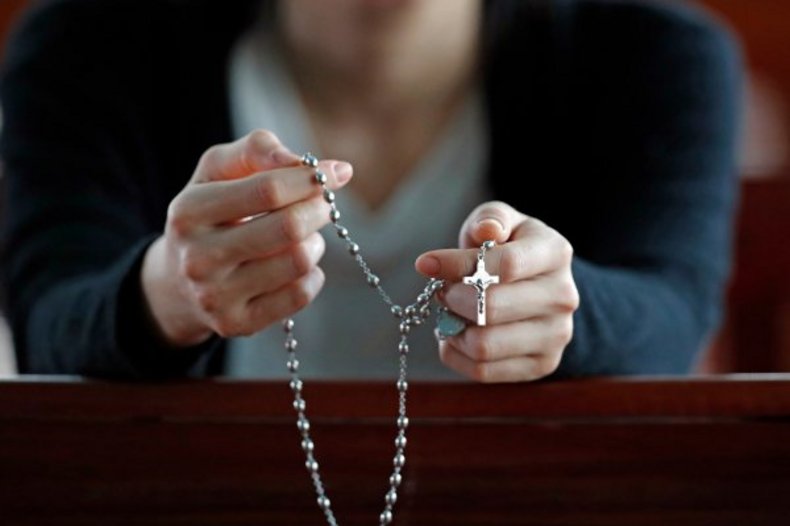
Shutterstock/godongphoto
Reasons to believe:
- Psychologically, the young woman's conversion was, in theory, strictly impossible: she came from a practising Muslim family, enjoyed a very comfortable social position before 1987 and was perfectly integrated into her socio-professional environment.
- Nahed's adventure was not an abstract discovery of Christianity, but a mystical experience: that of a true encounter with Jesus and Mary, to which the young woman testifies openly, beyond denominational boundaries and cultural taboos.
- In the space of a few days, Nahed learnt all about the history of the Church, theology and Christian spirituality, even though the only knowledge she had of Christianity before the apparitions was a few bits of catechism.
- When Nahed first saw Jesus, she couldn't really identify him and couldn't name the person who had spoken to her. Later, when she happened to see an image of the Shroud of Turin, she was amazed to see that it was, without a shadow of a doubt, the same face she had seen a few days earlier. She was therefore certain that it was Jesus and his mother who had appeared to her.
- Nahed's conversion had extremely important consequences that affected her whole life, but which she accepted in faith and hope: she was rejected by her family, including her children, persecuted by the authorities in her country, lost her job, was forced into exile in Europe, and faced the daily danger posed by the threats made against her.
This conversion cannot be seen as any kind of religious radicalisation: Nahed has never felt the slightest aggression towards the Muslim faithful whom she calls her "brothers and sisters". Since her conversion, she has never expressed any intention to force anyone to convert.
- The course of Nahed's conversion resembles other biblical events, starting with the conversion of Saint Paul on the road to Damascus (vision and words of Christ to a persecutor of Christians).
Summary:
Nahed Mahmoud Metwalli came from an influential Muslim family in Cairo that was openly hostile to Christianity and Christians. She took a dim view of the Copts in her country and never failed to say so in public. Married with three children, she was assistant principal of Cairo's main school for girls, with 4,000 pupils, in the Zeitoun district, near the Coptic basilica where the Marian apparitions of 1968 took place. At work, she was hostile towards Christian pupils and colleagues. "I persecuted them very hard and treated them with extreme severity. I thought it was my duty to do so," she confessed after her conversion.
On 5 November 1987, while chatting in her office with a Christian secretary, Nahed openly mocked the medal of Mary that the woman was wearing around her neck. Suddenly, the director felt an uncontrollable dizziness. The walls and floor of the room seemed to vanish in a beautiful luminosity whose source was unknown. In a flash,Nahed saw the Blessed Virgin, dressed and veiled in blue, just a metre away. It was not a figment of her imagination, but a beautiful young woman in the flesh, whose gaze pierced her. Nahed was stunned, as if she'd just received an electric shock. The secretary, who didn't see anything, thought the headmistress was ill. She rushed over to her and saved her from falling to the floor. Nahed soon came to her senses. That day she said nothing about her encounter, neither to the secretary nor to anyone else.
The next night was a long sleepless night. Nahed wondered if she was losing her mind. She didn't fall asleep until around 5am. Her husband, who also disliked Christians, seemed like a stranger to her. The next day, 6 November, as she struggled to work alone in her office with the door closed, a strong scent of incense suddenly filled the room. She looked up at the wall opposite her desk and saw, a few steps away, a man she had never seen before but who, as she would explain, was a real human being, whose physicality was beyond doubt. The stranger was dressed in white, with a beard and long hair. Like the apparition the day before, he stared at Nahed with his two extraordinary eyes. The apparition said to her in Arabic: "Be at peace, you will have a mission that will be revealed to you in due course." Then the apparition disappeared, leaving the headmistress completely baffled.
"Who could this person be that I didn't even hear enter the office? How did he manage to dissolve into thin air? What mission could it possibly be?" She tried to gather all her knowledge of Koranic tradition, but there was nothing remotely similar to what she had just experienced. It was too much for her, especially as she was still unable to put a name to the face of her apparition. She had obviously already seen representations of Jesus and Christian saints, although in limited numbers, but this time it was no longer an image, and even less an optical illusion.
Over the next few days, she managed to get to school, but stayed away from her colleagues and shut herself in for hours, asking not to be disturbed. Without realising it, her behaviour had changed. A few days later, she stumbled across a photo of the Holy Shroud of Turin. She again was stunned: the man in the photograph was absolutely identical to the one who had appeared in her office! According to her own testimony, it was the first time in her life that she's seen a reproduction of the image of the famous shroud. On the subject of his apparition, she adds: "It's him, but much more handsome." She was now certain that Christ and his Mother had come to her, who was completely ignorant of the Christian faith, and whom she had despised until then.
But Jesus and Mary didn't just "physically" manifest their presence to Nahed: they changed her outlook on life, on people, and on society; they taught her in an instant to see the world as Jesus sees it and to believe in him by loving her fellow human beings. They taught her, in a mysterious but complete way, the content of the Church's catechism, even though she had never even read a single passage of the Gospel. From that time on, Nahed felt an irresistible urge to follow Jesus. "What do I need to do to get started?"She was totally isolated in this new journey: in her professional environment, in her family, in her country, and in her culture.
Some time later, Jesus appeared to her again, seated on an indescribable throne. Nahed wanted to join him. The Lord asked her three times: "So, Nahed, it's over? Is it really over? Are you sure?" And she, overwhelmed, answered him three times: "Yes, it's all over!" Nahed's heart was changed in an instant, from persecutor of Christians to Christian convert in an instant. From then on, her negative attitude towards Christians changed radically. She now surrounded herself with Copts, women, men, lay people and priests. At work, people had a hard time reconciling the new Nahed with the old.
Nahed knew that, in her Muslim culture, converting to Christianity is apostasy and carries dire consequences. She didn't tell a single member of her family, not even her own children. Thanks to her new friends, she found a Coptic parish that she loved and to which she went discreetly whenever she could. It was there that she asked to be baptised, just a few weeks after the apparitions.
She was baptised in 1988. Since then, Nahed, a former persecutor, has become a target of persecution in her country and even within her family. First, she was fired from her job. Her husband, involved in Egyptian public life as a security official for politicians, disowned her, as did her children, with the exception of her daughter. She was watched, spied on and summoned by the police. To earn a living, she was forced to work in secret, as she had virtually no civil status. She became a stranger in her native land, banned from leaving the country. The months passed. Nothing altered her faith or her hope. With the help of Christians in Cairo, she survived as best she can. She even escaped several kidnapping attempts.
Finally, thanks to the support of exiled Christian friends, she secretly left Egypt for a European country, and never set foot in her native country again. She devotes herself to evangelisation, starting with that of Muslims living in Europe, through her spoken and written testimony and the example of her life, now engaged in loving and serving God. "The Christian faith has brought me incredible peace and joy, unknown in Islam [...]. Christianity is a life worthy of angels. May the Lord grant his light to all men so that they may know his truth and his love," she often repeats.
She, who had never opened a Bible before 5 November 1987, gives presentations and talks on the Christian faith, Jesus, Mary, the people of the book in the Koran, etc.
Patrick Sbalchiero
Beyond reasons to believe:
Nahed's radical conversion and the upheaval in her spiritual and moral outlook cannot be explained by psychology alone, especially as, since that event, her life has been marked by faith, charity and hope, despite the harsh persecution to which she has been subjected.
Going further:
Islam Encounters Christ by Nahed Mahmoud Metwalli and Fibi Abd Al-masih Salib, Light & Life Pub Co (January 1, 2002)




















